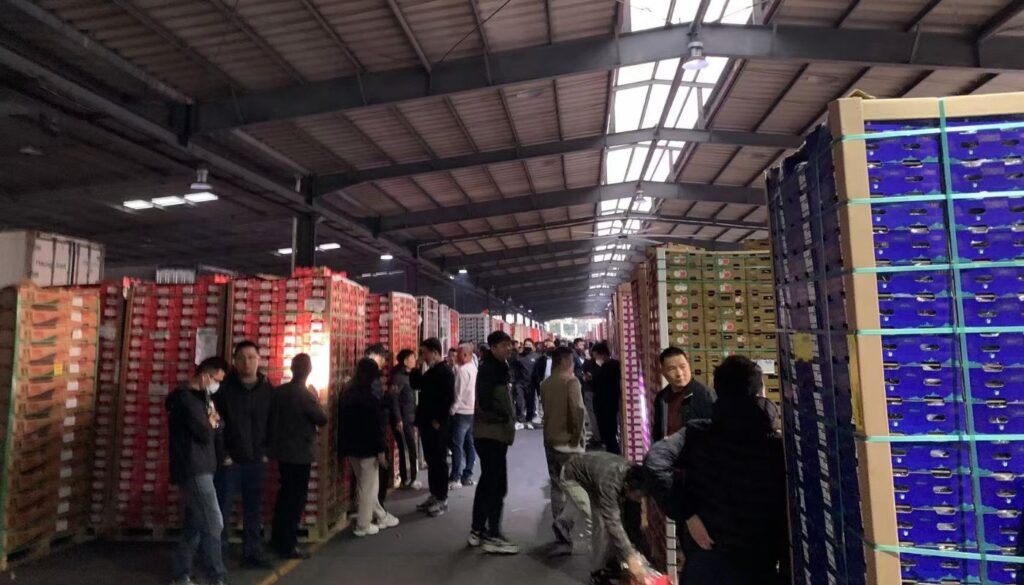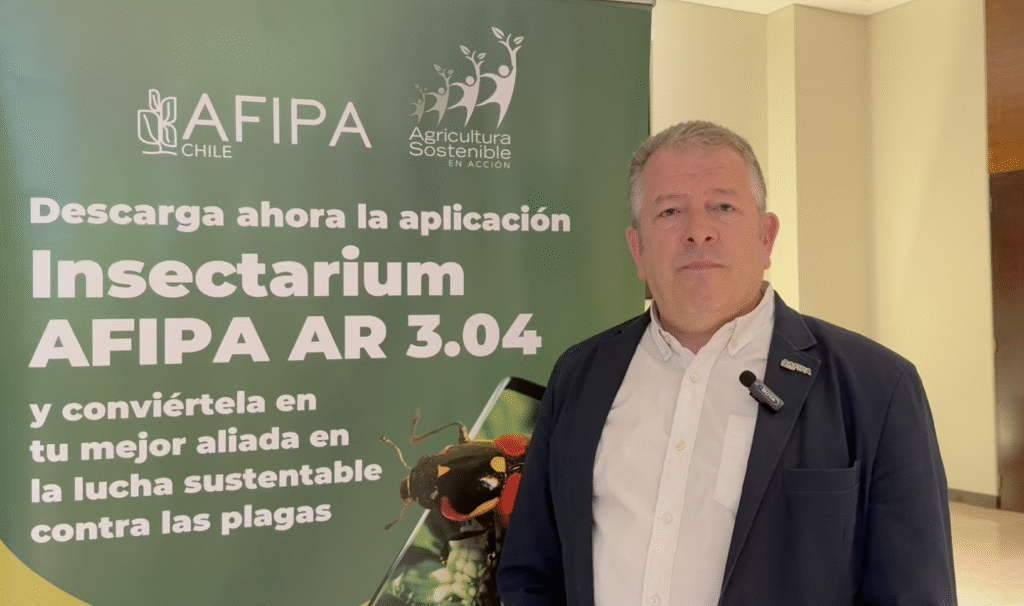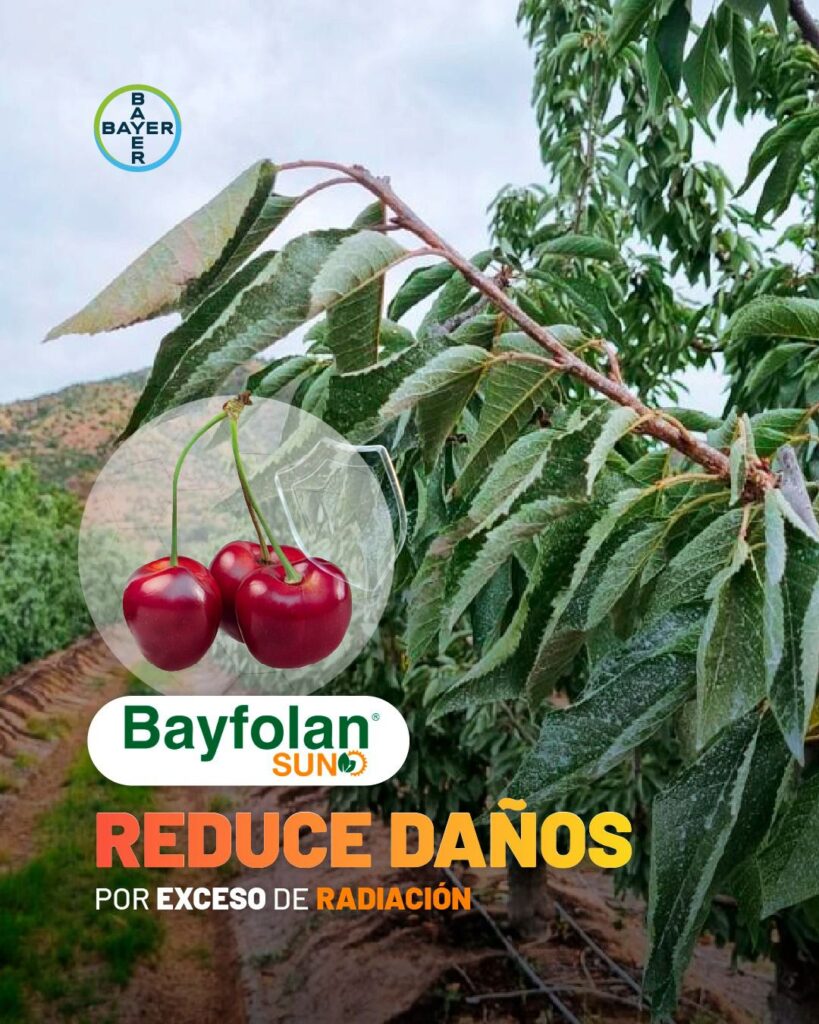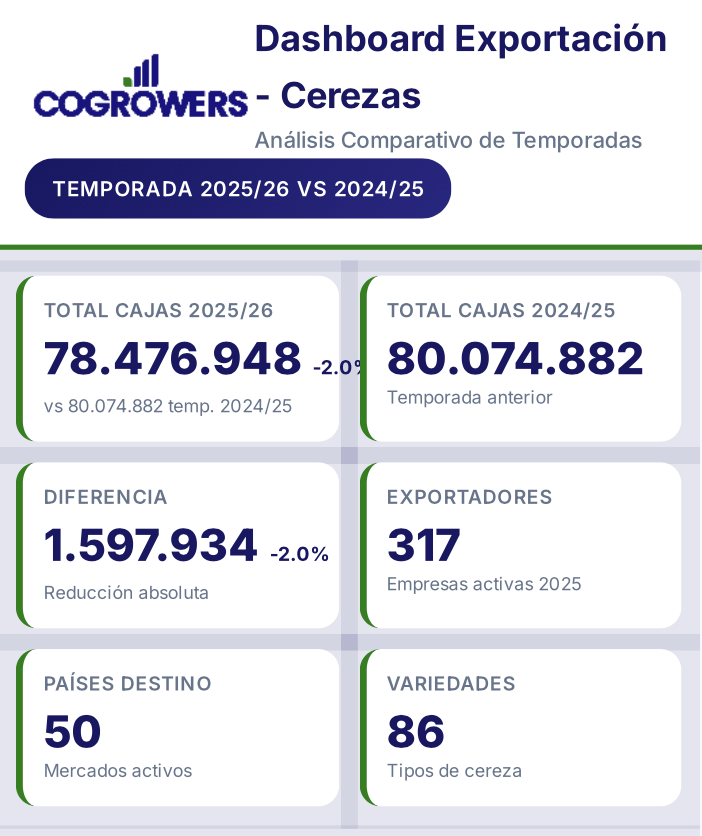Every March 8th, International Women's Day is commemorated and on this occasion Smartcherry chose a group of women who perform different tasks in the cherry industry to, through them, pay tribute to all those who work in this field..
Talking about cherries means talking about the fields, about early mornings, about excellent technical work, about packing, logistics, exports, market analysis and much more. Behind all these tasks there are different people who carry them out, among them a significant group of women; some live in anonymity, others are better known due to their role and are even industry leaders. Today we will learn about their stories, all very different, but equally important.
Angelina Arevalo – Harvester

Angelina is 30 years old, has 2 daughters and lives with her partner in the town of El Yacal, in the municipality of Molina. She has been working as a cherry picker for over 12 years. She is a fundamental part of the production chain, her work, along with that of many other women, allows the cherry harvest to take place each season.
«I started when I was still a minor. I started working because I wanted to buy my own things. I worked during the summer holidays, I went to sort, sometimes to harvest, things like that… of course I didn't earn the same as I do now.»
Last season she worked in a garden in Romeral, which meant getting up early to travel to the neighbouring commune to carry out her work as a seasonal worker.
"I feel proud, I love harvesting cherries, it is the season in which I make the most of saving money".
«I go where it is best, we always look for the best places, but not too far away either, because we almost always go in private cars, we never work in a van; last season I worked in Romeral"Angelina said.
While she works every harvest season, Angelina has done several other jobs in the cherry orchards: «Last year I started working more continuously, because my daughters grew up, they are older, I have planted cherry trees, tied cherry trees, done Chinese thinning, we have put toothpicks to open the hooks in cherry trees and the harvest., he commented.
Angelina already knows perfectly how to do her job. She admits that it was difficult at the beginning, but that today harvesting is easy and entertaining. Of course, she assures that the recent cherry season was not the best for the harvesters.
«In reality, harvesting cherries is super fast, because if you don't go fast you don't make any progress, but you have to take them out without the loader, try not to throw too many leaves, not to crush them, these things are learned over time and the clean cherry is put into the basket or box. This year it went really bad for us, the cherry was very bad, the most we earned was between 70-80 thousand pesos a day, no more. We worked from 6:00 a.m. to 1:00 p.m., maximum, because after that you can't work anymore because the stem of the cherry comes off.»«.
Regarding the role of women in agriculture and specifically in the cherry sector, Angelina highlights the contribution that women make in the orchards: «I think that women, we, are more delicate, we are better at harvesting cherries. I think that many farms, many bosses like to work with women, for the same reason, because we are not the kind of people who throw things away. I feel proud, I love harvesting cherries, it is the season in which I make the most of my money», concluded Angelina Arévalo.
Isabel Quiroz – Co-founder and Director of IQonsulting

Isabel Quiroz is undoubtedly a name that sounds loud and clear in the agricultural sector and also in the cherry industry; a reference in the commercial area, an exhibitor at the most important agricultural events and the official voice of the IQonsulting cherry yearbook that, season after season, provides hard data and a complete analysis of the national and global cherry industry.
We spoke with her in the framework of the commemoration of 8M, regarding how the role of women in the agricultural sector has changed in recent years: «It is true that it was a very masculinized field, however, in the beginning of history, agriculture was developed by women, then it became masculinized and I have been lucky enough to see the last part of this change; I think there are two important factors that have had an impact, on the one hand, access to higher education for women, something that began many years ago, our pioneers were paving the way. The first woman to graduate as an agronomist was Victoria Tagle on November 22, 1922 and many years passed before we saw the second. Currently, the participation of women who enroll and graduate from careers related to agriculture is more than 50%. This happened exactly in 100 years and it is a revolution. This allowed us to occupy technical and professional spaces, today the work of women in agriculture is not an issue. That is the main achievement. Let it not be an issue if you are a man or a woman for a job.»
«Be yourself. Think about what makes you happy and go along the way, this is a beautiful field. Breathe deeply and stretch every day, and while you do so, enjoy your achievements and a smile of pleasure will remain on your face.»
Quiroz also referred to the current situation in society, pointing out that: «The emergence of feminism in the last 50 years and the current “fashion” of “we should all be feminists” has brought with it both positive and more commercial aspects.»
Among the positive changes, the visibility of aspects such as inadequate treatment of women in some environments; wage differences; inequality in child care, among others, stands out: «The same women who take up professional and technical spaces in agriculture, have to work to give better spaces to women in environments with less access, such as the primary work area of agriculture, but also in business management, where there are fewer women working.«.
The Co-Founder and Executive Director of IQonsulting also referred to the long road she had to travel to become what she is today: a leading woman in the agricultural sector: «Thank you for considering me as a reference. My path was not focused on doing my job well. This path had setbacks, difficult times to get the company ahead, like life itself, but I didn't stop there and today I feel proud to have created my own work environment. The job that I started to invent one day trying to do what made me happy, without realizing it became a profession. A profession that I baptized as “Market Analyst” and that we practice at iQonsulting«.
Isabel Quiroz also pointed out that women are essential in the cherry industry, not only in the orchard, but throughout the chain: «For me, the cherry (which is feminine) is the only fruit among the important ones in Chile that enjoys an imaginary that elevates it to the category of desires, sensations, meanings. This came from the Chinese and has been a great lesson, it is the story that we have to work on in all fruits and not get lost. From that point of view, women have a lot to contribute to this industry, we must take more space in marketing, because it is easier for us to find the way to make those sensations and feelings explode in people who dare to try a perfect cherry from Chile. We must continue working on our story, the packaging, its colors and shapes so that the magic happens. It is the only thing that sustains an industry like this.«.
Bettina Stengel: Executive Director of the Fistur Agricultural and Forestry Society
Betina is an agricultural engineer who has worked in various areas related to foreign trade, both in Chile and abroad. Today, however, she is 100 percent dedicated to the agricultural sector, specifically to the commercial side of family cherry production in the Yumbel area, Biobío region.

«Indeed, the agricultural world is considered a male-dominated sector, but we must note that, in its productive base, women are essential and have always been a very important part of the industry, and this should be much more present. Unfortunately, in the commercial area and in management positions, the participation of women is lower and, in my opinion, I have not seen a substantial change in the last 12 years. Perhaps there have been changes, it may have increased by some percentage, but it is still very low. We are still very underrepresented, having all the tools to make this different; we have excellent universities, training centers, excellent professionals, a first-class industry… but there is a lack of female presence in higher leadership positions. In my case, I am lucky to have excellent female professionals working in our team, which is a luxury.«.
Bettina is currently Executive Director of the Agricultural and Forestry Society Fistur, prior to which she worked as a commercial attaché for ProChile in Germany, among other activities that have allowed her to be linked to the cherry industry.
«I have followed an unconventional path, living abroad for a long time and working in other industries, but always having as my main interest foreign trade, internationalization and a strong focus on agribusiness; I have always worked as equals, respecting the differences between women and men and complementing what each contributes to maximize the result and thus enhance the different jobs. Today I am once again 100% dedicated to the agricultural industry, very happy to be able to apply my experience in our family business, doing many entertaining things, but always keeping the focus on the quality of the product and service. In addition, we put a lot of energy into moving towards more sustainable business models, from production, through logistics and reaching the final consumer. I believe that in this whole process a greater integration of women is key, because we bring a different perspective and thus contribute from another perspective to the development of these initiatives.»
«We are part of a fundamental industry for the world, we have all the capabilities to be leaders; let us always look forward, with respect, security and empathy. Let us continue to grow this sector, contributing our vision and work to grow the agroindustry in the most sustainable way possible»
Regarding the importance of women in the agricultural sector, Bettina believes that «Women are just as important as men and always have been, but they should be more recognized and informed. I cannot tell you a specific area where we can develop better, (we have the same capabilities for everything) that should really be determined by our knowledge, experience and desire to work and not be stipulated in advance. What is important is to be able to level the playing field so that all women have the same opportunities and can go out to work in the same way as a man», concluded Bettina Stengel.
Maite Muñoz: Seasonal worker

Maite has only been working in the cherry field for two seasons; she is a single mother, her son is 8 years old, and she came to this field looking for better pay: «I came because you earned more money harvesting than in other things; at first it was quite difficult for me, I used to do quality control before, so at least I was used to working with scale, but not working quickly, and since I did quality control I was very selective at first.«.
The recent cherry season was her second time working in the harvest; she got up at 4 a.m. for three months to leave her son and nephew fed and head off to work with her sister: «We went through many orchards this season, we went to Romeral, Sarmiento, in Marengo«.
Maite points out that seasonal work is essential to survive the rest of the year: "It helps me a lot to secure myself financially for the bad months; the only time I can earn money is during the cherry season, then I save up and then in the winter I take some out."
"I wake up my son, give him breakfast and he falls asleep... and then I go to work."
She admits that it has not been easy; having to leave her son alone in the mornings is the price she has to pay to be able to work and bring home the bread; fortunately she has the support of her brother, who helps her with the care of the child. She adds that she has also had to become familiar with working on a ladder, which has caused her to fall several times, luckily without serious effects.
«The first thing is that you have to look at the ladder, I fell a couple of times; I recommend placing the ladder correctly, if you don't know how to place it correctly you won't harvest well; we women are much more delicate, we put more dedication into it, we are cleaner when working, maybe we are a little slower, but it is because we work cleanly,» Maite pointed out.
Valeria Lepe: Advisor and consultant specializing in nutrition of fruit species

Agricultural Engineer, academic, President of the Pomanova and Cherrynova Corporation, Master in Horticulture, Consultant in fruit nutrition, speaker at the most important events related to the agroindustry, member of the GTT "Frutales & Gestión 21", are some of the backgrounds of Valeria Lepe's extensive resume.
Smartcherry spoke with her as part of the tribute to women linked to the agricultural industry and, in particular, to cherry production. Valeria referred to the role of women in the agroindustry and how women's participation in this area has grown: "We are increasingly seeing more women in different roles in the fruit industry, contributing their knowledge and committed work in search of better production results."
Valeria is undoubtedly a benchmark in her field, a title she has earned through hard work, doing things right and being resilient: «The path must always be one of great professionalism and promoting teamwork between men and women, with complementary views in search of joint solutions. Contribution, constant work and never giving up if something doesn't work out. In my terms, I call it ant-like work.»
"You can always start over."
What do you think is the importance of women in the agricultural sector and, in particular, in the cherry industry? was another of the questions we asked the specialist in fruit nutrition, to which she responded: "Women still have a lot to contribute to the cherry industry, as production demands will continue to be high for the next season."
On this new 8M, the day that commemorates Women's Day, Valeria Lepe delivered an important message: «I like the concept of building shared perspectives between women and men and not parallel worlds; always as a woman expressing our different perspectives and never losing that sensitive vision; I think we can perfectly complement what we do», he concluded.








